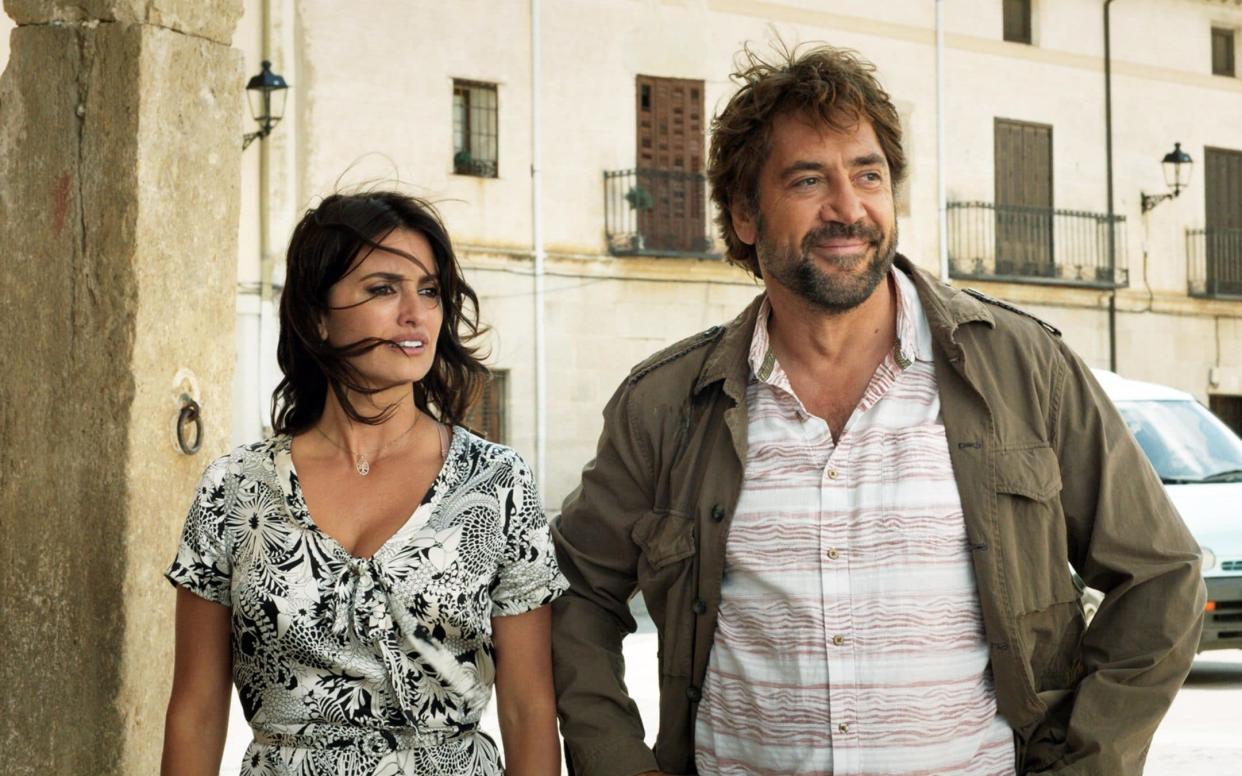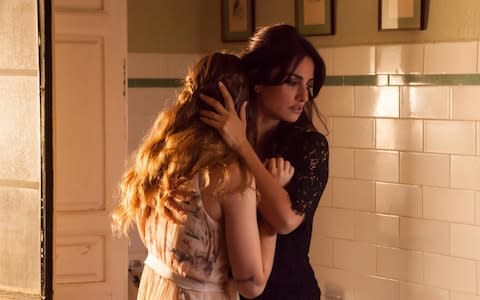Everybody Knows, review: Penelope Cruz and Javier Bardem's whodunit sucks the chemistry out of Cannes

If you are in the mood to watch a middle-aged man in need of a haircut trying to solve a mystery muddied by race, class and family ties, Asghar Farhadi has you covered. Over his 15-year filmmaking career, the Iranian director has made the above something of a hyper-specific stock-in-trade – most successfully in his 2011 Oscar-winner A Separation, in which a bourgeois, proudly rational Tehrani man and his wife become embroiled in a messy legal back-and-forth with his father’s pious working-class carer and her husband. Two more broadly successful spins on the formula followed, in The Past, set in Paris, and The Salesman, which brought him back to Tehran again: now by transplanting it to rural Spain, its limitations have begun to creak.
Everybody Knows, which opened the 71st edition of the Cannes Film Festival last night, is an ensemble whodunit which begins in a celebratory mood, during the final preparations for a wedding in a picturesque village near Madrid. It’s a bustling, nattery al fresco do, for which Laura (Penélope Cruz), the sister of the bride, has returned from Buenos Aires with her two children: husband Alejandro (Ricardo Darín) couldn’t make the trip, for reasons that are initially, and very deliberately, left vague. It isn’t long before she is reunited with Paco (Javier Bardem), a burly, avuncular old flame who never quite flickered out, and who now co-owns a vineyard bought from Laura’s family at contentious mates’ rates.

The film begins by bombarding you with snatches of backstory like this, most of which turn out to be important in that airtight, Ibsen-esque Farhadi way – and this only stops with the kidnapping of Laura’s teenage daughter Irene (Carla Campra) from her bedroom in the dead of night, while the wedding party roars on downstairs.
Contacting the police is rejected out of hand, as a recent child kidnapping in the area ended in tragedy. Instead Paco takes it on himself to sound out the situation, seeking advice from a retired detective friend (Eduard Fernández), who believes Irene was specifically targeted by someone either in the family, or close to it. In short, anyone could be a suspect – and the climate of mutual suspicion brings great bales of dirty laundry rolling out into the sunlight, as open secrets and old resentments, romantic, filial and financial, are furiously parsed for possible hints as to Irene’s whereabouts and fate.
It is almost as if this wider fragmentation was the kidnapper’s ultimate purpose, and Farhadi’s screenplay does an artful job of keeping vital fragments of each of its characters secret until the very end. But the climate of over-determined melodrama is rather less involving: characters synopsise their grievances so often, and so thoroughly, that many pivotal scenes have the corny texture of a “previously, on last week’s show” clip reel, and you often rather wish all of this unspoken ill-feeling had gone unspoken for a little while longer, just so the actors had more of an opportunity to flex their craft. (Bardem is never less than watchable as Paco, who ambles around the place like a bipedal bison, but Cruz is oddly underused: it just seems bizarre, if not downright culturally tone deaf, that a story about a kidnapped daughter set in Spain wouldn’t place her mother at the heart of every shot.)
Cannes Film Festival 2018: in pictures
Farhadi has told the story of a disappearing girl before in his 2009 film About Elly: a rivetingly eerie mystery that left behind a lasting shudder. This is a more narratively complex take on the premise, but also a strangely sexless and excessively tidy one, which invites no further reflection once its central mystery has been tied up. You go to a Penélope Cruz and Javier Bardem film for the chemistry, but this one feels like mathematics.

